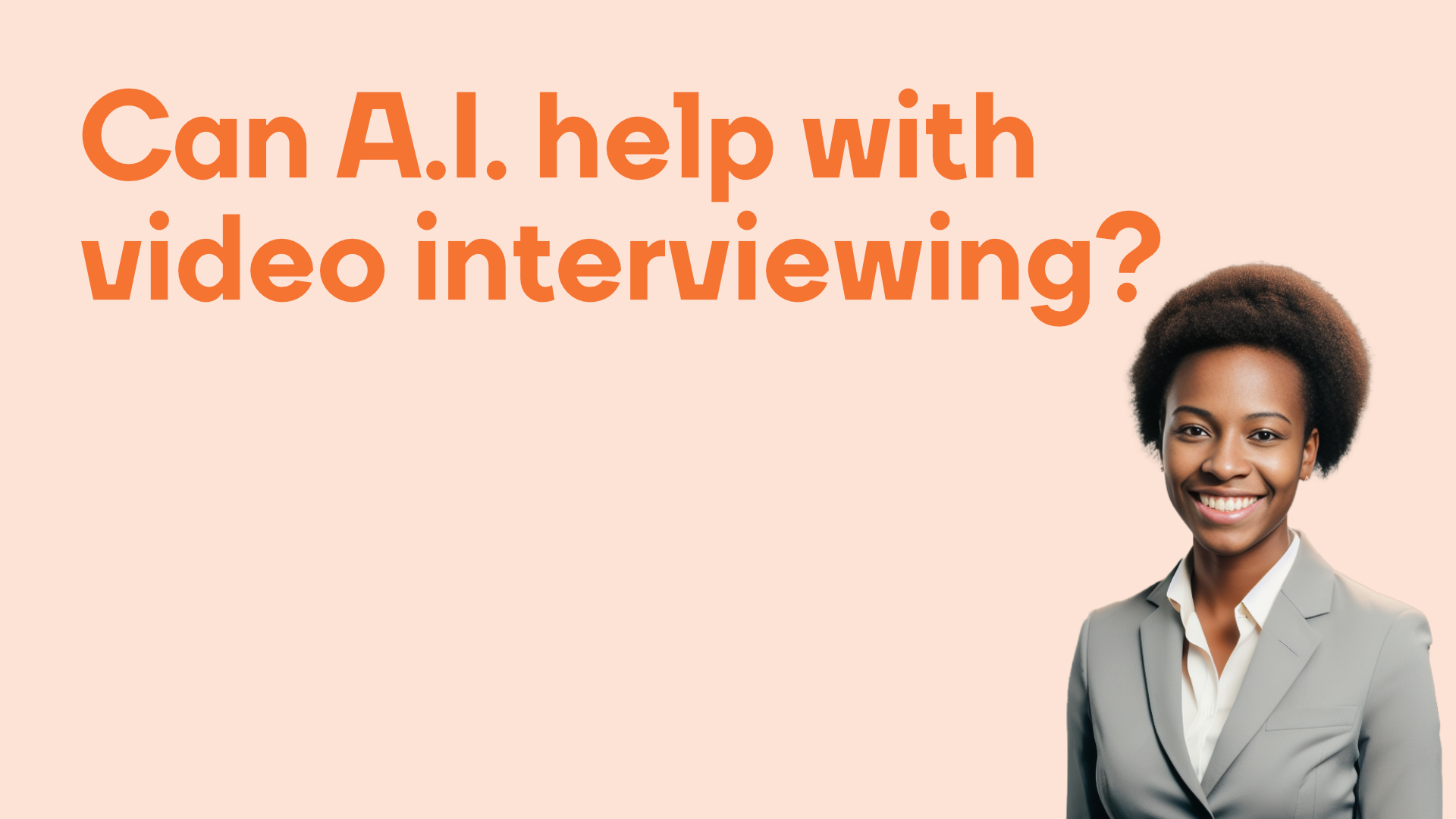Over the past few years (and no doubt spurred on by the dreaded c-word) we’ve noticed a marked increase in the number of organisations looking to implement A.I (or machine learning) in their recruitment and selection process.
What is Artificial Intelligence (AI)?
In short Artificial Intelligence essentially refers to the simulation of human processes by machines and computer based systems. It can replicate intelligent human behaviours such as facial expression recognition, problem solving, finding patterns in datasets and learning.
How does it work?
Video interviewing is an increasingly popular assessment tool, and one which is driven by artificial intelligence. AI electronically analyses many aspects of a video interview, including the candidate’s body language, facial expressions, word choices and tone of voice. It can also be used to track eye movements to determine whether a candidate is looking at resources around them.
Algorithms select the best applicants by assessing the performance of candidates in the video against a large inventory of facial and linguistic information. Candidates are typically ranked on a scale of 1-100 against a database of previous successful candidates.
Is AI any good in the hiring process?
Advocates of AI in recruitment argue that it will create a more efficient process for sifting through large volumes of applications, and it will eliminate unconscious human bias against candidates.
However, technology isn’t born in a perfect society; AI can only be as good as the information that humans have collated and inputted into the algorithm. As a result, AI presents several flaws which employers and recruiters should consider before implementing in the hiring process:
- Inherent bias
Unless the algorithms are powered by fully diverse datasets, it is inevitable that they’ll have in-built biases. There’s a high chance that the algorithms could discriminate against candidates from certain backgrounds and may unfairly exclude them from the process. Algorithms may even perpetuate and potentially amplify existing beliefs and biases.
- Ethical concerns
There’s little clarity about whether recruiters and employers are required to disclose details about using AI in their assessment process. Interviewing technology may not be sensitive enough to detect physical differences that could affect our facial expressions, and subsequently disadvantage potential candidates.
- Excluding talent
With algorithms being based largely on previous successful candidates, the interview process may favour the same types of candidates they’ve always hired and rule out people who are actually good for the job. The process may miss out on talent that presents itself in unconventional forms and will limit their candidate pool.
- Undesirable effects
If candidates are made aware that their facial expressions/tone of voice may be monitored during their assessments, it raises concerns whether candidates will display self-conscious behaviours, which may be viewed negatively on an assessment matrix.
Whilst AI is revolutionising the assessment process, it is still far from perfect.
Our soft skills platform can help streamline part of the assessment process by providing objective and insightful personality & cognitive ability reports, strategic interview questions to ask candidates, leadership assessments, video interviews and onboarding reports that help you make better hiring decisions and help your new hires to hit the ground running.




